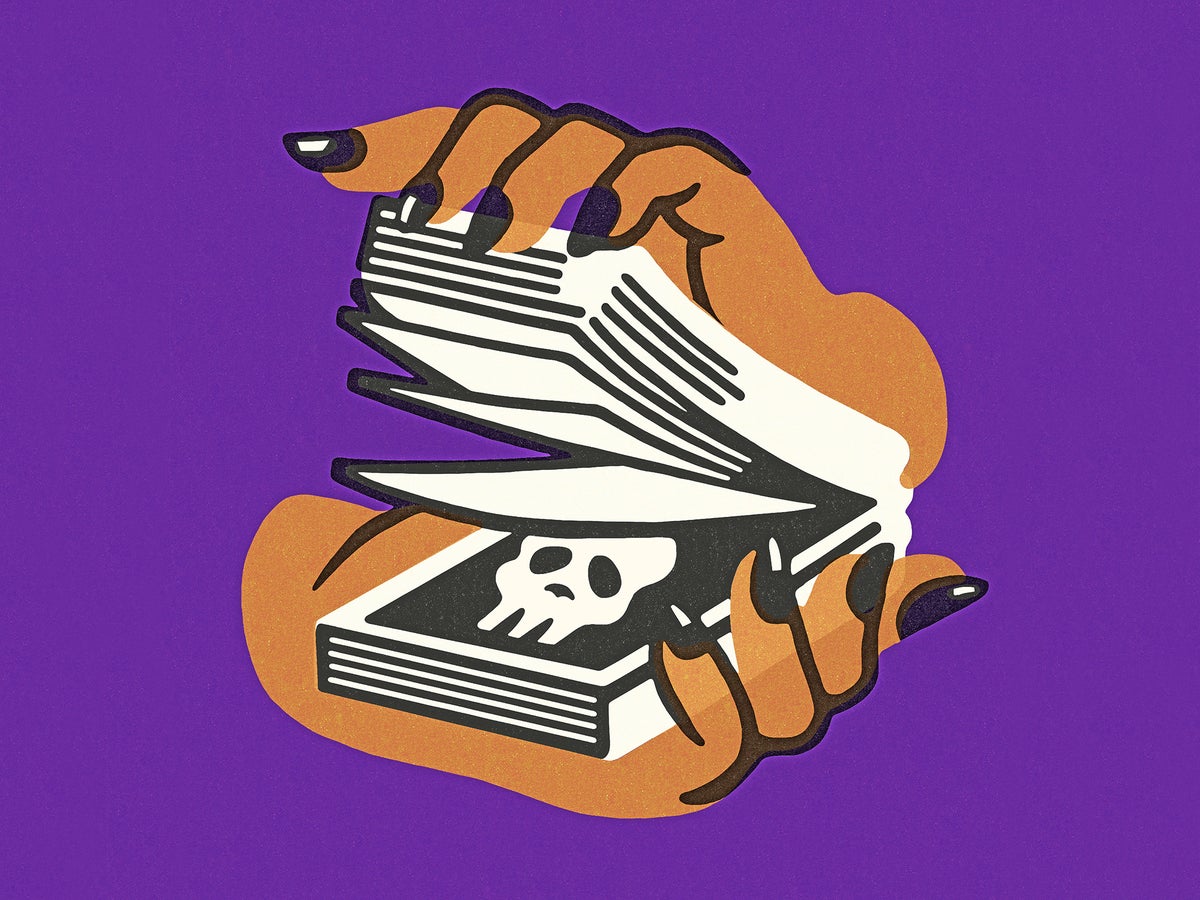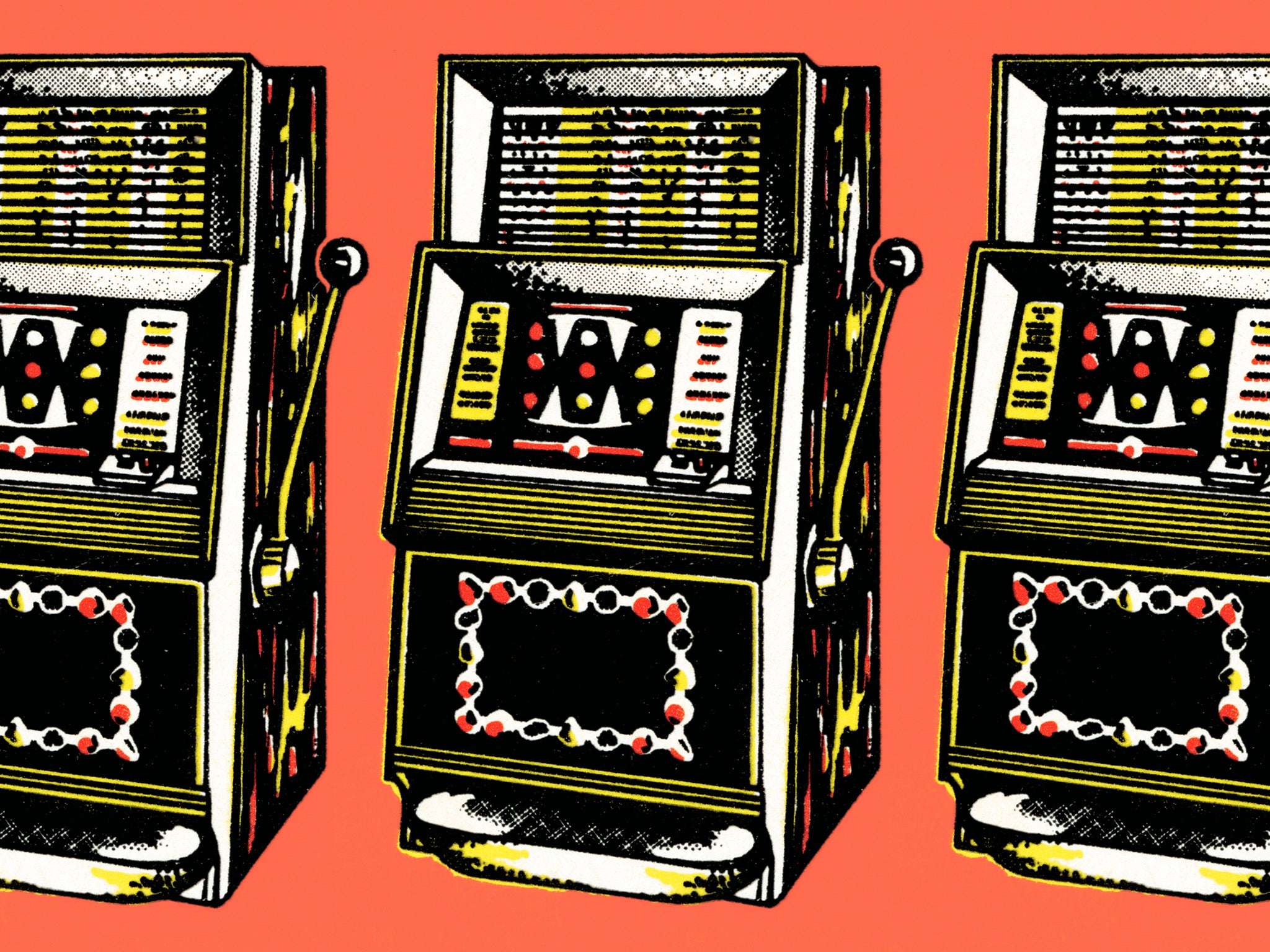
The worst day of Matt Zarb-Cousin’s gambling addiction saw him roll out of bed, rush to his local bookies and stand in front of the slot machine for six hours, bypassing food and drink entirely. He lost £2,500 that day. “Every fibre of my being was concentrated on gambling,” he recalls. “When I lost all the money, and I walked out of the shop, I was left with this adrenaline hangover.” It was the culmination of four years of gambling that had left him depressed and suicidal. He was just 16 and still at school when he became addicted to fixed-odds betting terminals – otherwise known as the “crack cocaine” of gambling. When he couldn’t play, he experienced withdrawal symptoms that left him anxious, agitated and unable to relax.
Now 33, he remembers that particular wasted day in front of the machine. “That was when I wanted to end my life because I felt like there was no way out. You see it all the time with gambling-related suicide; someone experiences a big loss and then immediately takes their own life. I remember what that feels like. I know exactly why that happens. It doesn’t even have to be a huge amount of money. It’s just that feeling of loss of control, loss of agency and a sense that you are never going to feel normal again.” Fortunately, through therapy and family support, Zarb-Cousin kicked the habit and has long since repaid his £20,000 in debts. And as director of Clean Up Gambling, he is now taking on the industry that nearly destroyed him.
There are more than 400 gambling-related suicides in the UK every year, while 1.4 million Brits are currently addicted, according to the charity Gambling with Lives. A government white paper, published last month, proposes a statutory levy on gambling operators to pay for research, education and treatment, as well as affordability checks for online gambling and the introduction of stake limits on online slots. These are among a raft of other changes to the Gambling Act 2005. It’s a big step forward, says Zarb-Cousin, but he’d like to see more from the Betting and Gaming Council (BGC), the standards body that represents betting shops, casinos, bingo halls and online gambling, which he claims is resisting reform.
He and others standing up to the gambling industry have a big fight on their hands. Last month, MP Scott Benton had the Tory whip suspended after he allegedly told an undercover reporter for The Times that he could lobby ministers on behalf of gambling interests. Gambling companies have also increased the amount they spend on wooing Conservative and Labour MPs tenfold in five years, according to The Guardian.
A spokesperson for the Betting and Gaming Council tells The Independent: “In constituencies across the country, BGC members support the jobs of 110,000 people – on hard-pressed high streets through betting shops, in hospitality and tourism via casinos and bingo, as well a large and growing number of tech jobs in the online sector. We strongly support the gambling review, which is an important opportunity to further raise standards and promote safer gambling. Any hospitality is consistent with the parliamentary rules and is fully declared and transparent.”
Benton apparently told undercover reporters that firms can place falsely low values on ticketed “gifts” to events so as to avoid having to declare them – Commons rules require MPs to disclose hospitality worth £300 or more. He told them: “Without saying too much, you’d be amazed at the number of times I’ve been to races and the ticket comes to £295.”
The BGC claims the number of people being harmed by gambling is falling – with “problem gambling rates among UK adults down to 0.2 per cent, from 0.3 per cent in previous years” – but last year the NHS launched two new gambling clinics to meet what it called “record demand”.
For former addict Jack Symons, the numbers don’t add up. Symons lost an estimated £50-£100k (“or possibly more”) after he became hooked on online poker and slots at the age of 18. “It was like medication,” he says. “It allowed me to put my mind into a sort of numb state. Except there was someone benefitting from it.” Symons would play up to 14 hours a day and found that gambling disrupted his mind and decision-making processes. He would stay up all night in a casino gambling to “save money” on hotels while working away, leaving him penniless for the journey home.
“It is a hidden addiction,” he adds. “I let it control my mood. The level of excitement I got from winning was not as much as the low that I got from losing.” He became reckless and made bad decisions. “You would win an amount – say, £998 – but I felt only a psychopath would stop at £998. It’s got to be £1,000. And you can lose £998 trying to make that extra £2, because it’s not a round number. How stupid is that? Gambling was costing me my rational mind and it was costing me – and has done to this day – my relationship with money.” He didn’t know if he gambled because he was depressed, or whether he was depressed because he gambled.
You get euphoria when you win, but that soon goes. And you just want it again and again. I’ve never taken drugs but it must be what drug addiction feels like— Tracey Stevenson
In 2015, Symons set up the gambling site-blocking app Gamban alongside Zarb-Cousin, a move he says facilitated his recovery. Working on the app has also led Symons to question the industry’s claims about how much safer gambling has become. “Where operators are being fined many millions of pounds for very serious breaches while also being praised for their corporate social responsibility, clearly something is going wrong.”
One of these was Gala Bingo, which was fined £2.3m for breaching consumer-protection regulations in 2017. The action followed the discovery of significant flaws in Gala’s dealings with Tracey Stevenson, a former account manager from Telford. The 60-year-old had become addicted to the slots on the Gala Bingo site. Over the course of five years, she lost hundreds of thousands of pounds along with her home and her marriage. She also stole from her employer to pay her debts. “It got to the stage where all I cared about was chasing the win and trying to get back the money that I’d wasted,” she tells me. “You get euphoria when you win, but that soon goes. And you just want it again and again. I’ve never taken drugs but it must be what drug addiction feels like.” Stevenson would play at work on her computer, every evening on her iPad, and would sometimes wake up in the middle of the night to play. And because she was such a valuable customer, she was lavished by Gala with free trips and international holidays.
“I was seduced,” she says. “It was absolute love bombing. I was a VIP and I had an account manager who told me, ‘I’ve been told by the director – whatever Tracey wants, Tracey gets. So what do you want?’ I said I wanted to go and see Elton John and Dolly Parton. So I went and they paid for it all. They made me feel like a celebrity.” Stevenson would put cash in her account, and Gala would match it up to the value of £1,500. The money stopped seeming real, and whatever Stevenson won, she put straight back in.
“It’s like the method drug dealers use in county lines,” she continues. “They reel you in and buy you trainers, tracksuits. It’s predatory.” Over the course of her five-year addiction, Stevenson won two big jackpots totalling more than £1.5m, which she gambled away. “It doesn’t feel real. If you were standing there, with hundreds of pounds in your hand, you wouldn’t be feeding it into a machine. But it was so easy to put in more money. I’ve never been in a bookies or on a machine. But I can quite honestly say if I was standing there with all that money physically in my hand, I wouldn’t have done it. It becomes surreal; like playing monopoly.” Meanwhile, Gala kept her close; sending her chocolates, flowers and hampers. She asks: “Is that what they [gambling companies] are doing to MPs? Giving them this special treatment?”

It all ended when Stevenson’s husband found a suicide note explaining what she had done. She had stolen £1.7m from her employers and in 2017 she was sentenced to four years in prison. “I hold my hands up and take full responsibility for what I have done,” she says. “But [Gala] have to be culpable for encouraging it and the amount I was spending.”
A spokesperson for Entain, which now owns the Gala brand, says Stevenson’s case preceded their ownership, adding: “Entain’s number one priority is customer safety, and it leads the industry with its safer gaming approach through initiatives such as its advanced responsibility and care programme that takes a proactive approach to safer gambling.”
To prevent further harm, Stevenson believes gambling advertising should be banned; it is the one proposal that campaigners say has been missed by the new white paper. “They took cigarette adverts off the telly. Why not gambling adverts? It ruins lives.”
Meanwhile, the NHS is still treating record numbers of people who also experience gambling addiction. It saw a 50 per cent increase in referrals last year compared to 2021. Claire Murdoch, an NHS mental health director, welcomes the reforms to the gambling industry but stresses that more needs to be done. “I have personally heard of countless examples of people bereaved by gambling addiction or who have contemplated suicide,” she says. “It should not be left to the health service to pick up the pieces left behind by a billion-pound industry profiting on vulnerable people.”
Symons agrees. “Behind every statistic there is a person, and a story just like mine, just like Matt’s, of mental health, breakdown, and divorce and suicide,” he says. “We’re still quite far away from where I think we need to be.”







